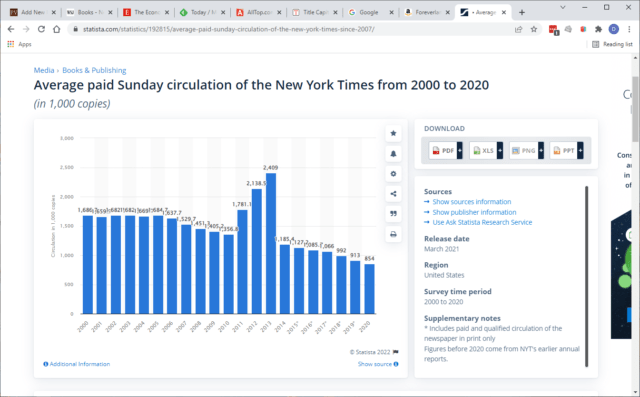From Writer Unboxed:
Several years ago in a campaign wrap-up call for an author’s first self-published book (she had a few books with big houses in previous years), she commented to me that she was disappointed by the lack of blogger reviews I had gotten for her novel. Fair enough – most of the bloggers that had covered her in the past either hadn’t responded to my outreach, expressed that they had too much on their plate, or were nowhere to be found. When a book is self-published, publicists often receive a different response from media and influencers, so the quiet didn’t weigh on me heavily. When I told my client we had secured and paid for a BookBub deal that lead to more than 27k downloads and dozens of favorable Amazon reviews in just a week’s period of time, creating a halo-effect for her previous works and introducing thousands of new readers to her work, she said nothing except to ask what was BookBub was. (It was in our proposal and letter of agreement.) Some months later, I heard she had gotten an offer from one of Amazon’s publishing imprints for that very same book. Bravo!
Let’s break this apart.
-We were at a turning point in the blogging world. The reason for my poor showing on the blogger front was perhaps less about me doing the work and more about the fact that bloggers weren’t doing so much blogging anymore. Hello #bookstagram
-BookBub was founded in 2012. Think about when you first started using this influential platform. For any author that has gotten a BookBub deal – how thrilled were you?
-Amazon started its publishing arm in 2009 and launched several imprints in its first two years. And that was over a decade ago. I love the idea of more authors having a shot at living their dreams, but what does it mean for PR?
This morning I was listening to David Bowie’s song CHANGES. I love Bowie–the oddity, the wandering, the uniqueness, the fact that he was always ahead of the time, THE CHANGES.
Here in book world, you may have noticed some of the changes–popular books out of stock, less attendance at Zoom events, publishers not wanting authors to do virtual bookstore events, delayed shipments, authors creating their own platforms on social media, lots of Instagram Live programming, less reviews, not much differentiation of books in media coverage.
M.J. Rose, Founder of Authorbuzz; Co-founder Blue Box Press; Bestselling novelist (current book out is The Fashion Orphans with Randy Susan Meyers)
We are finding with so many more books being released than ever before, one of the most important new developments is that the book’s Amazon page is more important than it ever has been.
There’s a limited amount of information any marketing can impart. Ads interest people in the book but what sells the book is the book description and reader reviews and excerpt on the Amazon page.
So what is key? The book description needs to help the reader know quickly if the book is for them or not. Not adjectives about how good the writing is or how profound (insert any other word) but rather what kind of book this is.
You need to tell the reader – hey if you love this author and that author – this book is for you – to give them examples – to explain. Then the description needs to be no more than 3 -4 tight and powerful paragraphs.
Here is an example of one that works so well:
In the vein of The Time Traveler’s Wife and Life After Life, The Invisible Life of Addie LaRue is New York Times bestselling author V. E. Schwab’s genre-defying tour de force.
A Life No One Will Remember. A Story You Will Never Forget.
France, 1714: in a moment of desperation, a young woman makes a Faustian bargain to live forever—and is cursed to be forgotten by everyone she meets.
Thus begins the extraordinary life of Addie LaRue, and a dazzling adventure that will play out across centuries and continents, across history and art, as a young woman learns how far she will go to leave her mark on the world.
But everything changes when, after nearly 300 years, Addie stumbles across a young man in a hidden bookstore and he remembers her name.
Link to the rest at Writer Unboxed
PG suspects that the traditional public relations business has become very difficult after the Covid shutdowns.
PR is like advertising, although you’re hiring a PR agency to get you free (if you don’t think about the fees you pay to the agency) publicity for your book, product, services, etc.
Typically, the PR agency has good contacts in all areas of the traditional media and uses those contacts to pitch stories to, for example, The New York Times.
However, not all is well with traditional media these days. Here’s a graph showing paid circulation of the Sunday NYT (typically the largest circulation edition) over time:

You will note that fewer and fewer people have been reading the New York Times each year for the past seven years. And the graph shows how many people are receiving the Times, not whether they are actually reading some, all or none of the paper.
PG suspects that PR agencies have online experts, but he also suspects that an Instagram genius can make more money on an independent basis than she/he could as the employee of a PR agency.
This is speculation on PG’s part. He’s happy to hear opinions from others with more actual knowledge.
PG apologizes for the bad image quality. You can find the original Statista graph here.